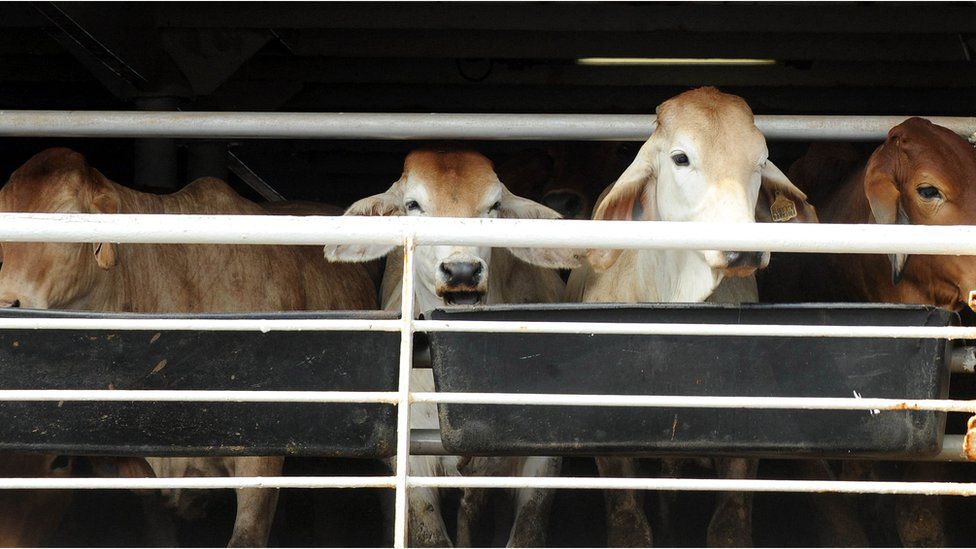ARTICLE AD BOX
 Image source, AFP
Image source, AFP
Animal rights campaigners want to ban the export of live animals by sea (file photo)
By Danai Nesta Kupemba
BBC News
A "nauseating" stench engulfing the South African city of Cape Town comes from a ship docked in the port carrying 19,000 cows, local officials say.
"It was the worst stench I have ever come across in my life," Lerato Bashing, a 29-year-old Cape Town resident, told the BBC.
The smell has been traced to the Al Kuwait ship which has been anchored in Cape Town since Sunday evening.
The City of Cape Town said on X the issue of the smell was being handled.
The city's official in charge of water and sanitation, Zahid Badroodien, said the ship was due to leave on Monday night.
The Al Kuwait is heading to Iraq from Brazil. It stopped in Cape Town to get feed for the cattle, according to anti-animal cruelty organisation, NSPCA.
Its agents boarded the ship to asses the condition of the ship and said in a statement: "This smell is indicative of the awful conditions the animals endure, having already spent 2½ weeks on board, with a build-up of faeces and ammonia."
"It ruined my day because even when I was indoors, every time the lift opened, the smell spilled over into the office and it stuck in the back of my throat like a bad aftertaste," Ms Bashing said.
Another resident, who works near the harbour, told the BBC the smell was "overwhelming" and they were forced to close their car windows, despite it being a hot day.
"It smelled as bad as one you'd imagine and I was put off of breathing," they said.
However, residents say the stink has not reached the other side of Table Mountain or the southern suburbs.
While residents in the port city were greatly affected, many wondered how the crew were faring as they had spent about two weeks with the cattle.
"I feel sorry for the workers on that carrier who have to be around that every day and for the animals," Ms Bashing said.
The NSPCA took the moment to reiterate "its firm stance against the live export of animals by sea".
The group launched a campaign in 2019 to stop the the practice.
The NSPCA says this method of trade causes "pain, suffering and distress to many animals".
Additional reporting by Flora Drury

 1 year ago
118
1 year ago
118








 English (US) ·
English (US) ·